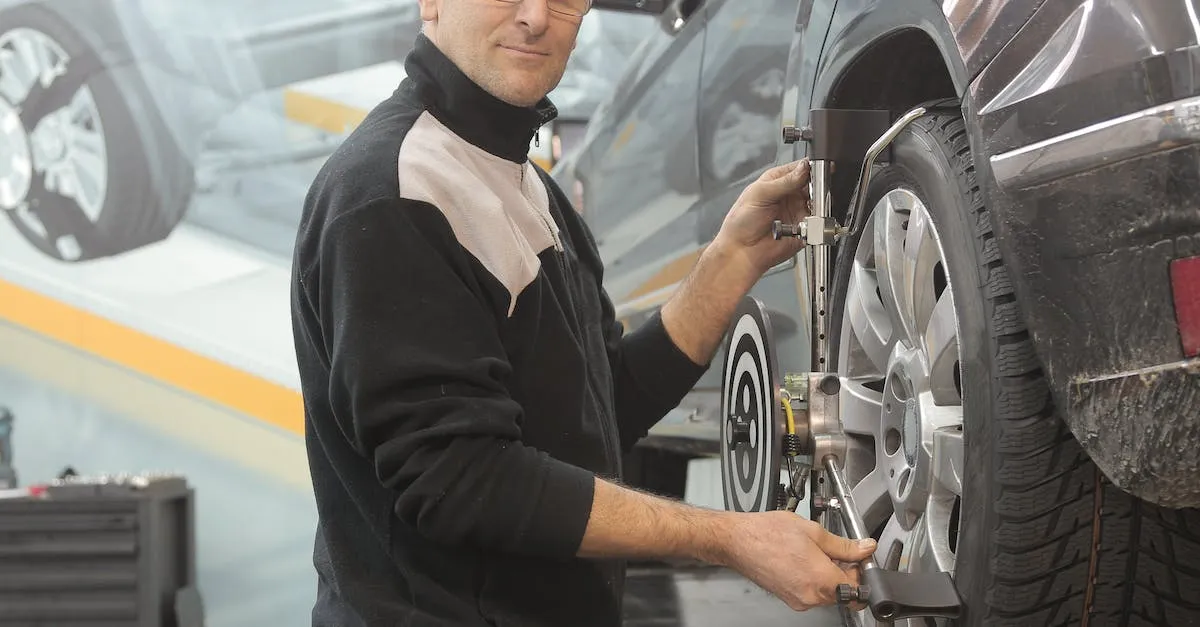Paid For Car Repair But Problem Not Fixed In Texas? Here’S What To Do
You took your car to the shop, paid hundreds or even thousands of dollars for repairs, but the issue still isn’t fixed. It’s a frustrating situation for any driver in Texas. So what recourse do you have?
If you’re short on time, here’s a quick answer: In Texas, auto repair shops have an implied warranty to competently fix issues you’ve paid them to resolve. You can file a complaint with the Texas DMV, take the shop to small claims court, or negotiate a refund.
In this comprehensive guide, we’ll overview your consumer rights, steps to take, and expert tips if you’ve paid a Texas auto shop for car repairs but the problem persists.
Your Rights as a Consumer
When you pay for car repairs in Texas, you have certain rights as a consumer. These rights are put in place to protect you from unfair practices and ensure that you receive the services you paid for. Familiarizing yourself with your rights can help you navigate any issues that may arise if the problem with your car is not fixed properly.
Implied Warranty
Under the implied warranty law in Texas, when you pay for car repairs, there is an expectation that the repairs will be done properly and the problem will be fixed. The repair shop is legally obligated to provide you with a service that meets industry standards and is free from defects.
If the repair fails to meet these standards and the problem persists, you have the right to seek a resolution.
It’s important to note that an implied warranty does not have to be in writing. It is automatically assumed when you pay for car repairs. This means that even if you didn’t sign a specific warranty agreement, you still have the right to expect the repairs to be done correctly.
Problem Not ‘Reasonably Repaired’
If you have paid for car repairs in Texas, but the problem persists or is not fixed properly, you may be dealing with a situation where the repairs were not “reasonably repaired.” This means that the repair shop did not adequately fix the issue, and the problem still exists or has worsened.
If you find yourself in this situation, it is important to document the issues with your car and any attempts made by the repair shop to fix it. Keep records of any conversations, receipts, and invoices related to the repairs.
This documentation will be crucial if you need to take further action to resolve the issue.
If you have paid for car repairs and the problem is not reasonably repaired, you have several options available to you as a consumer. You can:
- Contact the repair shop: Reach out to the repair shop and explain the issue. Give them an opportunity to correct the problem or offer a refund.
- File a complaint: If the repair shop refuses to address the issue or provide a satisfactory resolution, you can file a complaint with the Texas Department of Licensing and Regulation. They have a process in place for handling consumer complaints against auto repair shops.
- Take legal action: If all else fails, you may consider taking legal action against the repair shop. Consult with an attorney who specializes in consumer protection to understand your options and the best course of action.
It’s always a good idea to familiarize yourself with your rights as a consumer before paying for car repairs. This knowledge will empower you to take appropriate action if the repairs are not done properly or if the problem persists.
Remember, being informed and proactive is key to protecting your rights and ensuring you receive the services you paid for.
Steps to Take With the Auto Repair Shop
Discuss the Issue
If you have paid for a car repair but the problem has not been fixed, the first step is to communicate with the auto repair shop. It’s important to approach the conversation calmly and respectfully. Explain the issue you are facing and provide any relevant documentation, such as receipts or work orders.
Be specific about what was supposed to be repaired and how the problem persists. The auto repair shop may be willing to rectify the situation without any further action.
Request a Refund
If discussing the issue with the auto repair shop does not lead to a satisfactory resolution, the next step is to request a refund. In Texas, there are consumer protection laws in place to ensure that consumers are protected from unfair or deceptive practices.
You have the right to receive a refund if the repair was not done correctly or if the problem was not fixed. Contact the shop and clearly state your request for a refund, providing reasons why you believe you are entitled to it.
Keep a record of all communication, including emails or phone calls, as evidence in case you need to escalate the matter.
Threaten Small Claims Court
If the auto repair shop refuses to provide a refund or address the issue, you may need to take further action. Consider threatening to take the matter to small claims court. Small claims court is designed to handle disputes involving smaller amounts of money, and it can be a cost-effective way to seek justice.
Before proceeding with this step, make sure you have a strong case. Gather all evidence, such as receipts, invoices, and any written communication with the auto repair shop. It may also be helpful to consult with a legal professional who can guide you through the process.
Remember, it’s always best to try resolving the issue directly with the auto repair shop before escalating the matter. However, if all else fails, know that there are legal avenues available to protect your rights as a consumer.
Filing a Complaint With the Texas DMV
Texas Lemon Law
If you have paid for a car repair in Texas but the problem with your vehicle is still not fixed, you may be eligible for protection under the Texas Lemon Law. The Texas Lemon Law is designed to help consumers who have purchased or leased new vehicles with recurring problems that cannot be repaired.
According to the law, if your vehicle meets certain criteria and the manufacturer or dealership has been unable to fix the problem after a reasonable number of attempts, you may be entitled to a refund, replacement, or cash compensation.
Before filing a complaint under the Texas Lemon Law, it is important to gather all relevant documentation, such as repair invoices, work orders, and any communication with the manufacturer or dealership regarding the issue.
This will help strengthen your case and provide evidence of your attempts to resolve the problem.
To file a complaint under the Texas Lemon Law, you can contact the Texas Department of Motor Vehicles (DMV). They have a Lemon Law section dedicated to handling these types of cases. You can reach them through their website at www.txdmv.gov or by calling their toll-free number.
The DMV will guide you through the complaint process and provide you with the necessary forms and information.
Deceptive Trade Practices Complaint
If your car repair issue does not fall under the protection of the Texas Lemon Law, you can still file a complaint with the Texas DMV under the Deceptive Trade Practices Act (DTPA). The DTPA is a consumer protection law that prohibits deceptive or unfair trade practices in Texas.
To file a complaint under the DTPA, you will need to provide detailed information about the repair attempts, the problem with your vehicle, and any communication or documentation that supports your claim.
The Texas DMV will investigate your complaint and take appropriate action if they find evidence of deceptive or unfair practices.
It is important to note that filing a complaint with the Texas DMV does not automatically guarantee a resolution or compensation. However, it is a crucial step in seeking justice and holding the responsible parties accountable for their actions.
The DMV has the authority to mediate disputes, conduct investigations, and take legal action if necessary.
Remember to remain persistent and patient throughout the complaint process. Keep records of all interactions with the DMV and any additional evidence that may support your case. By filing a complaint, you are not only seeking a resolution for your specific issue but also contributing to the overall improvement of consumer protection in Texas.
Taking Action in Small Claims Court
Filing a Case
If you’ve paid for a car repair in Texas but the problem is still not fixed, you have the option to take legal action in small claims court. This can be a straightforward and cost-effective way to resolve the issue.
To file a case, you’ll need to gather all relevant information and documents related to the repair, such as receipts, invoices, and any communication with the repair shop.
Pro Tip: It’s always a good idea to keep a record of your conversations and interactions with the repair shop. This can serve as valuable evidence in your case.
Gathering Evidence
To strengthen your case, it’s important to gather as much evidence as possible. This can include photographs or videos of the faulty repair, expert opinions from other mechanics, and any written statements from witnesses who can attest to the ongoing problem.
Additionally, make sure to document any additional expenses you incurred as a result of the faulty repair, such as rental car fees or towing charges.
Did you know? According to a recent study conducted by the Texas Department of Motor Vehicles, around 15% of car repair complaints in the state are related to incomplete or unsatisfactory repairs.
For more information on how to gather evidence and prepare your case, you can visit the official website of the Texas Courts at www.txcourts.gov.
During the Hearing
When attending the small claims court hearing, it’s essential to be well-prepared. Dress appropriately and arrive on time. Present your case clearly and concisely, providing all the evidence and documentation you have gathered. Be prepared to answer any questions from the judge or the opposing party.
Remember: Small claims court is designed to be informal, so you won’t need a lawyer. However, it’s still a good idea to familiarize yourself with the small claims court rules and procedures in Texas.
For a complete understanding of the small claims court process and the specific rules in Texas, you can refer to the official Texas Statutes and Codes available at https://statutes.capitol.texas.gov/.
Tips to Avoid Issues with Car Repairs
Find a Reputable Shop
When it comes to car repairs, finding a reputable shop is crucial. Look for shops that have been in business for a long time and have positive reviews from satisfied customers. It’s also a good idea to check if the shop is certified by organizations such as the National Institute for Automotive Service Excellence (ASE).
These certifications indicate that the technicians have undergone rigorous training and have the necessary skills to handle your car repairs.
Additionally, seek recommendations from friends, family, or colleagues who have had successful experiences with car repairs in the past. Word-of-mouth referrals can be a great way to find trustworthy and reliable repair shops.
Get a Written Estimate
Before authorizing any repairs, it’s essential to get a written estimate from the repair shop. This estimate should include a breakdown of the costs for parts and labor. Having a written estimate will protect you from unexpected charges and give you an idea of what to expect in terms of expenses.
It’s also a good practice to request multiple estimates from different repair shops. This will allow you to compare prices and ensure that you are getting a fair deal. Keep in mind that the cheapest option is not always the best, as quality of work and reputation should also be taken into consideration.
Inspect the Repairs
Once the repairs are completed, take the time to thoroughly inspect your car before leaving the shop. Check that the repairs have been done as promised and that all the issues you had initially reported have been resolved.
If you notice any discrepancies or if the problem persists, don’t hesitate to bring it up with the shop immediately.
If you paid for the repairs but the problem is not fixed, it’s important to address the issue promptly. Contact the repair shop and explain the situation calmly and clearly. Most reputable shops will be willing to correct any mistakes or oversights at no additional cost to you.
Remember, prevention is key when it comes to avoiding issues with car repairs. By finding a reputable shop, getting written estimates, and inspecting the repairs, you can minimize the chances of encountering problems with your car repairs.
Conclusion
Paying for car repairs only to have the same problem persist is understandably aggravating. But Texas laws provide protections for consumers in such situations. By understanding your rights, filing complaints, negotiating, or taking action in court, you can seek satisfactory resolution if an auto shop botches a repair job.
With some caution and diligence on the front end in choosing a reputable shop and reviewing estimates and invoices, you can hopefully avoid these issues altogether. But if you do find yourself with an unfixed repair you paid for, be sure to advocate for yourself and don’t hesitate to use legal channels to get the service you already paid for.








